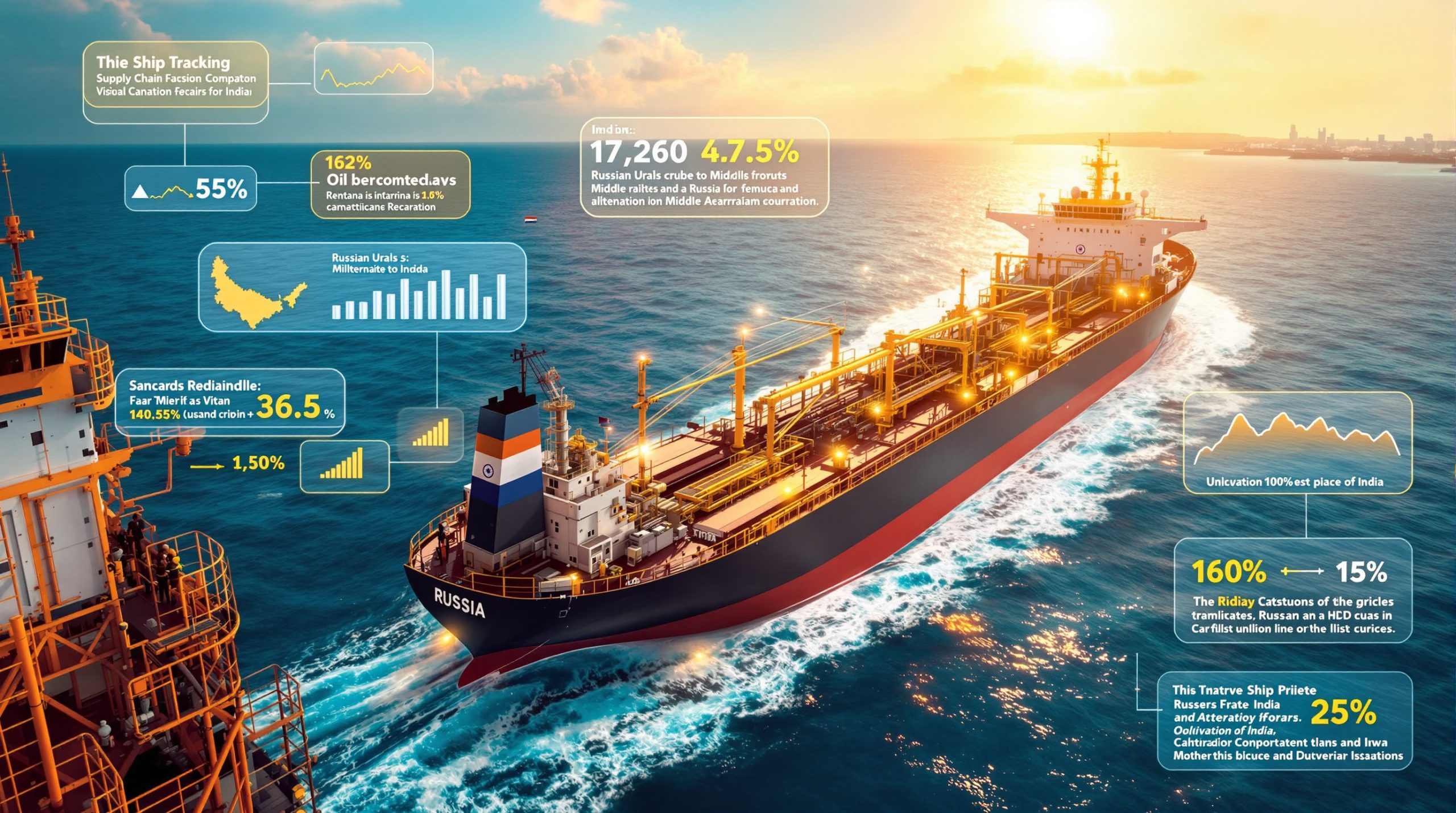What Is a PGM Exchange and Why Does South Africa Need One?
A Platinum Group Metals exchange represents a specialised digital trading platform where platinum, palladium, rhodium, ruthenium, iridium, and osmium are traded through standardised contracts and transparent pricing mechanisms. The creation of a PGM exchange in South Africa would revolutionise how these critical minerals are traded globally. Unlike traditional over-the-counter negotiations, an exchange provides centralised price discovery, regulatory oversight, and standardised trading procedures that benefit the entire supply chain.
The Strategic Imperative for Financial Beneficiation
South Africa's commanding position in global PGM reserves creates an unprecedented opportunity for financial market development. The country controls approximately 80% of worldwide platinum group metals deposits, yet currently exports raw and semi-processed materials while other financial centres capture the value-added trading profits.
This represents a fundamental economic inefficiency that requires immediate strategic attention. The establishment of a domestic PGM exchange would enable South Africa to capture the highest-value end of the beneficiation spectrum. Furthermore, this transformation would shift the country from a commodity exporter into a price-setting financial hub.
Key advantages of domestic price discovery include:
- Control over global PGM pricing mechanisms
- Enhanced revenue from trading commissions and clearing fees
- Reduced dependency on foreign exchange rate fluctuations
- Greater transparency in market operations
- Integration with existing JSE technology integration
How Would a South African PGM Exchange Transform Global Trading?
Digital Platform Architecture and Price Discovery
A South African PGM exchange would operate as a fully digitised trading environment, utilising blockchain technology for transaction recording and verification. Modern digital trading platforms would aggregate pricing information from multiple global markets whilst establishing South Africa as the primary price-setting jurisdiction for PGM commodities.
The technological foundation builds upon proven systems already deployed across global commodity markets. Implementation would involve extending existing JSE technology rather than developing entirely new infrastructure. Consequently, this approach significantly reduces development costs and timeline requirements.
Essential technological components include:
- Real-time price discovery algorithms processing multiple data streams
- Automated settlement systems reducing transaction completion time
- Digital warehousing certificates enabling electronic commodity verification
- Advanced cybersecurity protocols protecting transaction integrity
- Blockchain trading systems ensuring transparent transaction histories
Information Aggregation and Market Intelligence
Beyond simple price discovery, the exchange would serve as a comprehensive information aggregation platform, collecting and analysing data from global PGM markets. This functionality would reinforce South Africa's position as the central hub for PGM market intelligence, regardless of where physical trading occurs.
The platform would track all digitised information exchanges, creating comprehensive market records similar to banking statements. However, this transparency represents a significant advancement over traditional over-the-counter PGM trading, where pricing information remains fragmented across multiple counterparties.
Regulatory Framework and International Standards
Success requires comprehensive regulatory alignment with global commodity trading standards, overseen by the South African Reserve Bank and financial market regulators. The framework would ensure international credibility whilst maintaining local control over pricing mechanisms.
Regulatory preparation involves developing policy frameworks across government departments, extending existing JSE oversight capabilities, and establishing credibility for sustained operations. The legal foundation would align with common global standards and principles. In addition, this ensures seamless integration with international trading systems.
What Economic Benefits Could a PGM Exchange Generate for South Africa?
Multi-Sector Value Chain Integration
The economic impact extends far beyond direct trading revenues, creating interconnected benefits across South Africa's financial services ecosystem. A PGM exchange would link beneficially to multiple sectors, generating employment and revenue across various industries.
| Sector | Direct Benefits | Indirect Benefits |
|---|---|---|
| Financial Services | Trading commissions, clearing fees | Enhanced JSE global ranking |
| Legal Services | Contract drafting, dispute resolution | International arbitration hub |
| Insurance | Commodity risk coverage | Marine and cargo insurance |
| Logistics | Warehousing, transportation | Port facility utilisation |
| Technology | Digital platform development | Fintech innovation ecosystem |
| Education | Skills development programmes | Specialised financial training |
Long-Term Strategic Positioning
Historical precedent demonstrates the enduring value of commodity exchanges. For instance, the London gold exchange, established over a century ago, continues generating substantial economic benefits despite the United Kingdom having no domestic gold production. This model validates the century-long competitive advantages possible through strategic exchange development.
South Africa's dominant resource position provides sustained relevance for the next 100 years. Therefore, this ensures long-term benefits from exchange operations. Unlike short-term beneficiation strategies, commodity exchanges represent permanent value-creation platforms that compound benefits over time.
Critical Minerals Strategy Integration
South Africa's approved critical minerals strategy, developed through partnerships with specialised research institutions and government departments, identifies significant economic opportunities through local processing and beneficiation. According to strategy estimates, Africa could create 2.3 million jobs and increase GDP by 12% through local processing and beneficiation of critical minerals.
The mining industry serves as the foundation for South Africa's next industrialisation phase. Furthermore, PGM exchange development would catalyse broader economic transformation across multiple sectors.
Why Is the Timing Optimal for PGM Exchange Development?
Green Technology Revolution and PGM Demand
The global transition toward sustainable technologies has created unprecedented demand for PGMs across multiple applications. This demand acceleration represents irreversible forward momentum that strongly supports exchange development timing.
Artificial Intelligence and Data Centre Energy Demand:
The rise of AI applications requires unprecedented data storage density, driving energy demand at scales rarely seen in history. This demand is projected to double by 2030, reaching a magnitude equal to Japan's total current electricity consumption (approximately 280-300 TWh annually).
Many data centres are introducing PGM-based hydrogen fuel cells as primary energy sources to cope with AI infrastructure requirements. The unique properties of ruthenium enable higher data storage density in hard disk drives. Meanwhile, palladium provides enhanced energy density and improved cyclability in battery technology.
Hydrogen Fuel Cell Technology Applications:
- Commercial aviation developing hydrogen-powered aircraft (Airbus targeting 2027 for ground testing)
- Industrial electrolysis systems producing hundreds of megawatts
- Large-scale electrolysis systems scaling up across multiple industries
- Green hydrogen pilot facilities initiated by major utilities
Regional Green Hydrogen Development
Multiple African nations are accelerating green hydrogen initiatives, creating sustained regional demand for PGM-based technologies. This regional development ensures local market depth beyond global export opportunities.
Specific Regional Projects:
- South Africa: Coega green ammonia facility targeting 2029 commercial production with guaranteed European and Japanese offtakers
- Namibia, Egypt, Kenya, Morocco: Expanding green hydrogen infrastructure development
- Blended Finance Support: Joint participation by South African state-owned entities with European Union backing
Global Hydrogen Industry Participants:
Major hydrogen development is rapidly advancing across China, Japan, South Korea, Europe, Australia, and North America. South Africa is positioned to become a critical contributor to the global hydrogen economy across the entire value chain. Consequently, PGMs remain at the core of technological requirements.
Technology-Enabled Market Advantages
Modern digital trading platforms eliminate many historical barriers to commodity exchange success. Blockchain verification systems, automated settlement mechanisms, and cybersecurity protocols reduce operational costs. However, they also enhance security and transparency.
The convergence of proven technology, favourable market conditions, and South Africa's dominant resource position creates optimal timing for exchange launch. Unlike previous commodity exchange attempts during market downturns, current development coincides with accelerating PGM demand from green technology applications.
What Role Do Secondary Markets Play in PGM Exchange Strategy?
Recycling and Re-beneficiation Trends
Global secondary PGM supply continues expanding through recycling programmes, potentially diminishing South Africa's relative market share over time. However, primary production from South African mines will remain dominant for decades. Therefore, this provides sustained exchange relevance.
Current Secondary Market Contributions:
- Automotive catalyst recycling: 25-30% of annual PGM supply
- Electronic waste recovery: 15-20% of palladium supply
- Jewellery recycling: 10-15% of platinum supply
Strategic Response to Market Evolution
A South African PGM exchange would capture value from both primary production and secondary market trading. This positioning establishes the country as the central hub regardless of supply source distribution. The exchange design accommodates diverse supply sources whilst maintaining South Africa's price-setting authority.
The key strategic consideration involves timing. South Africa's strategic positioning in PGMs diminishes with each passing day as secondary markets increase their global supply share. Furthermore, recycling and re-beneficiation activities continue expanding. This urgency supports immediate exchange development rather than prolonged planning phases.
How Would Implementation Proceed Without Government Fiscal Investment?
Private-Public Partnership Structure
Exchange development requires no direct government funding, instead relying on regulatory framework establishment and private sector investment. This approach eliminates fiscal constraints whilst ensuring proper oversight and credibility.
Implementation requires:
- Regulatory preparation: Policy framework development across government departments
- Technology integration: Extending existing JSE digital infrastructure
- Market maker recruitment: Attracting international trading participants
- Liquidity development: Establishing initial trading volumes through strategic partnerships
Existing Infrastructure Advantages
South Africa possesses several competitive advantages enabling rapid exchange implementation without significant capital investment.
Available Infrastructure:
- JSE Technology Platform: Proven digital trading infrastructure requiring only extension rather than replacement
- Regulatory Experience: Established commodity trading oversight capabilities
- Financial Services Sector: Sophisticated banking and insurance industries
- Legal Framework: Common law system compatible with international standards
The existing technological foundation eliminates major development risks and reduces implementation timelines significantly. Rather than developing new systems, the initiative involves applying proven technologies. In addition, these technologies are already utilised across global stock exchanges.
Governance and Regulatory Requirements
Success depends on effective regulation and seamless interplay between various sectors rather than fiscal investment. The government's role involves establishing proper regulatory frameworks within which the exchange gains credibility. Consequently, this ensures sustained operations.
Required Regulatory Alignment:
- Common global standards and legal principles
- Cybersecurity and private information protection
- Transparent rules and regulations governing platform operations
- Integration with South African Reserve Bank oversight
What Challenges Must Be Addressed for Successful Exchange Launch?
Global Competition and Market Acceptance
Existing PGM trading centres will resist South African market development, requiring demonstration of superior value propositions. Success requires offering enhanced pricing transparency, reduced transaction costs, and improved market access for African producers.
The challenge involves establishing credibility and liquidity simultaneously. International market acceptance depends on demonstrating operational excellence from launch. Therefore, this requires careful preparation and strategic partnerships with major market participants.
Liquidity and Market Making
Initial trading volumes may be limited, requiring strategic partnerships with major mining companies and international commodity traders. These partnerships ensure adequate liquidity for effective price discovery functions.
Liquidity Development Strategies:
- Partnership agreements with major South African PGM producers
- International market maker recruitment programmes
- Integration with existing global trading networks
- Gradual volume building through competitive pricing
Technical Implementation Considerations
Whilst existing JSE technology provides the foundation, specific PGM trading requirements demand specialised functionality development. Technical challenges include integrating commodity-specific settlement procedures, warehousing verification systems, and quality assurance protocols.
Critical Technical Requirements:
- Digital warehousing certificates for physical commodity verification
- Quality assurance protocols for different PGM grades
- Integration with international settlement systems
- Real-time inventory tracking across multiple locations
What Makes This Initiative Different from Previous Commodity Exchange Attempts?
Technology-Enabled Advantages
Modern digital trading platforms provide capabilities unavailable during previous commodity exchange development attempts. Blockchain verification systems, automated settlement mechanisms, and advanced cybersecurity protocols eliminate traditional operational barriers. Furthermore, they reduce costs significantly.
The technological environment enables transparent record-keeping, automated transaction processing, and seamless integration with global trading networks. These capabilities address historical challenges that limited previous exchange success.
Market Timing and Global Demand Convergence
Unlike previous attempts during commodity market downturns, the creation of a PGM exchange in South Africa coincides with accelerating demand from green technology applications. The irreversible momentum toward sustainable technologies ensures sustained PGM demand growth. However, this contrasts with cyclical volatility patterns.
Favourable Timing Factors:
- Green technology adoption reaching irreversible momentum
- Hydrogen economy development across multiple regions
- AI infrastructure requiring unprecedented energy solutions
- Government policy support for clean technology initiatives
- Established financing mechanisms for green technology projects
Sustained Resource Advantage
South Africa's dominant PGM reserves position provides sustained competitive advantages extending approximately 100 years into the future. This timeline ensures exchange relevance regardless of short-term market fluctuations or competitive pressures.
The combination of permanent resource advantages, favourable technology conditions, and accelerating market demand creates unprecedented opportunities. Consequently, this supports successful exchange establishment.
What Are the Economic Impact Projections and Strategic Outcomes?
JSE Global Ranking Enhancement
PGM exchange development would enhance the Johannesburg Stock Exchange's global ranking by establishing a long-term platform for specialised commodity trading. This positioning attracts international investment and strengthens South Africa's financial services sector reputation.
The exchange economic impact creates opportunities for JSE to compete directly with major global commodity trading centres. Furthermore, this potentially captures market share from established platforms through superior service offerings and competitive pricing.
Skills Development and Human Capital
Exchange operations require specialised skills development across multiple disciplines, from advanced financial engineering to commodity logistics management. Skills development programmes spanning level four qualifications to doctoral degrees support long-term human capital development.
Required Skill Sets:
- Advanced financial market operations
- Commodity trading and risk management
- Digital platform management and cybersecurity
- Regulatory compliance and legal frameworks
- International business development
Innovation Ecosystem Development
The exchange serves as a catalyst for broader fintech innovation ecosystem development. This attracts technology companies and financial services providers to South Africa. Digital platform requirements drive innovation across multiple technology sectors.
As a digital platform, the PGM exchange enhances globally growing digitalisation value chains. However, it also positions South Africa as an innovation hub for commodity trading technology.
Why Should South Africa Act Now?
The creation of a PGM exchange in South Africa represents more than commodity trading infrastructure development. For instance, it embodies South Africa's strategic positioning for sustained economic benefits from natural resource endowments. Furthermore, it catalyses broader economic transformation across multiple sectors.
Success requires immediate action to capitalise on favourable market conditions, technological capabilities, and irreversible green technology momentum. The convergence of these factors creates a unique window of opportunity. Therefore, this demands strategic implementation rather than prolonged deliberation.
According to recent research by MISTRA, South Africa's strategic positioning in PGMs provides compelling economic justification for exchange development. Moreover, economic analysts suggest that timing considerations make immediate implementation essential for capturing maximum benefits.
The window of opportunity continues narrowing as secondary markets expand and alternative technologies develop. However, South Africa's resource advantages remain unparalleled globally. The creation of a PGM exchange in South Africa would secure the country's position as the definitive price-setting authority for these critical minerals.
Disclaimer: This analysis is based on publicly available information and expert opinions as of November 2025. Commodity markets involve significant risks, and potential investors should conduct independent research and consult qualified professionals before making investment decisions. Economic projections and market assessments represent informed estimates rather than guaranteed outcomes.
Ready to Capitalise on PGM Market Opportunities?
Discovery Alert's proprietary Discovery IQ model delivers real-time alerts on significant mineral discoveries across all commodities, including precious metals and critical minerals, instantly empowering subscribers to identify actionable opportunities ahead of the broader market. Begin your 30-day free trial today at Discovery Alert and secure your market-leading advantage in the evolving commodities landscape.




